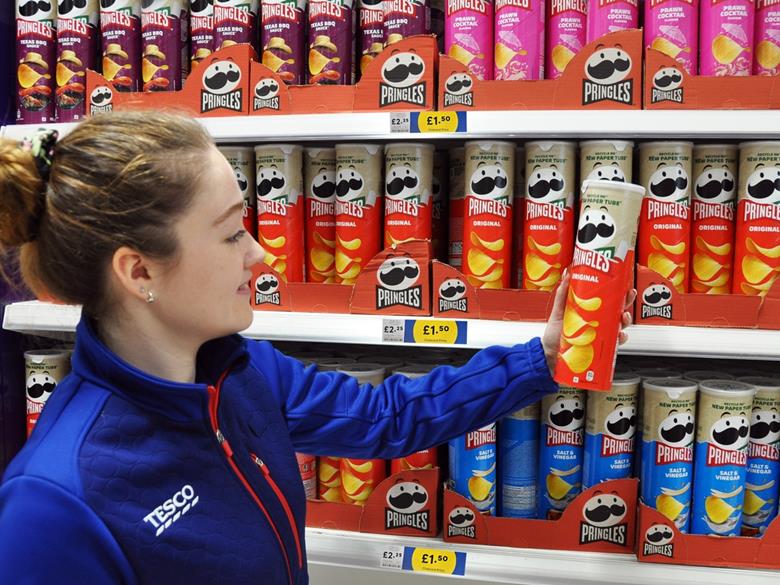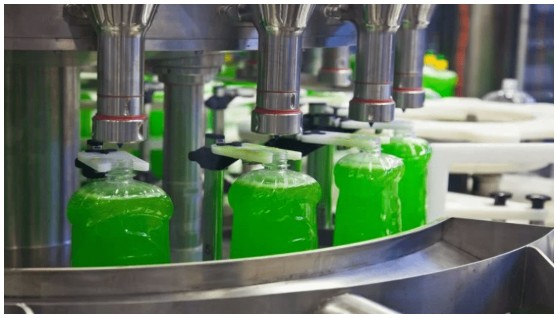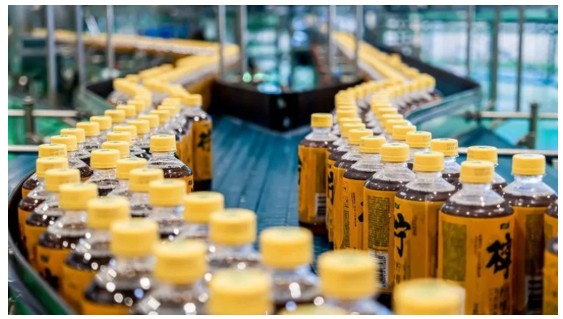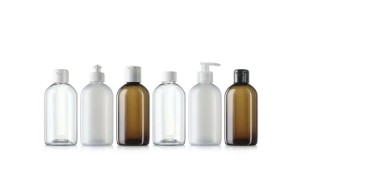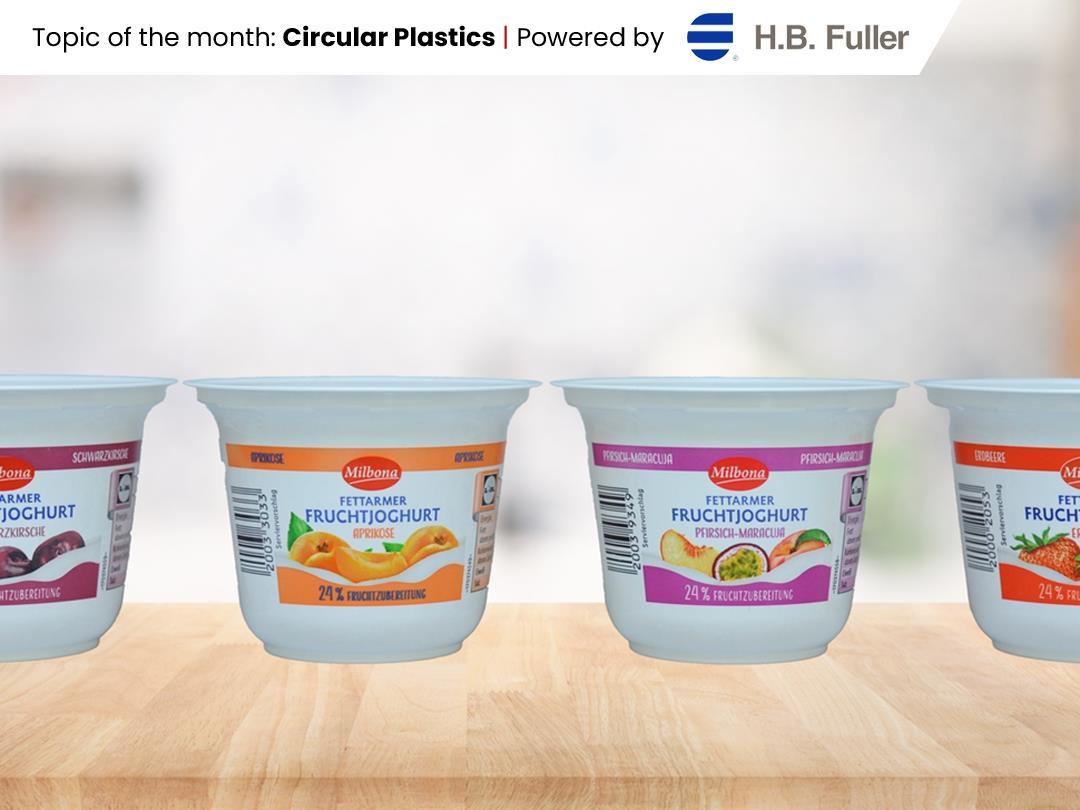A 90% paper tube developed for Pringles crisps is now available exclusively at Tesco stores and online, with around 48 million expected to be sold in the first year.
The new tube was unveiled last year. It is made of recycled paper and replaces the steel base of the previous design with a paper alternative – allowing consumers to dispose of the pack in their home recycling bins. It is also set to feature a recyclable plastic lid.
Kellanova, the owner of the Pringles brand, anticipates that a 90% paper tube will bring the company closer to its target of ensuring all its packaging is recyclable, reusable, and/or compostable by 2025. Tests conducted by the company’s packaging experts suggest that the new packaging maintains the old tube’s protective properties and keeps the crisps fresh for 15 months.
Starting this week, the tube will be available exclusively in Tesco locations and via its online store – as well as One Stop stores, which are part of the Tesco Group. It is anticipated that around 48 million Pringles tubes will be sold in Tesco in the first year alone.
Other supermarkets are set to sell the tube towards the end of 2024.
“We know people want to reduce their impact to the planet and it’s our responsibility to improve the recyclability of our packaging,” said Chris Silcock, UK managing director at Kellanova. “We’ve worked hard to develop and test a recyclable Pringles paper tube and we made significant investment in new technology to enable our factories to produce it.
“Not only is it widely recyclable but it keeps the chips fresh and tasty and protects them from breaking which helps to reduce food waste.”
Seàn Cairns, president of Global Rigid Paper and Closures (RPC) at Sonoco, helped the technical teams at Pringles design the new tube for recycling and underlines the growing awareness amongst consumers as to how their spending affects the environment – which is driving an uptake in sustainability-minded packaging.
“With this in mind, it’s important for businesses to stay ahead of the curve by exploring new packaging technologies and materials,” he says. “It was a pleasure working with Pringles and we look forward to seeing how the new paper-based tube is received by the market.
“We hope the success of this project inspires other companies and brands to convert to more sustainable packaging.”
Paul Sanderson, CEO of The Recycling Association, continued: “It has taken a great deal of research and development to achieve a fully paper-based tube with a paper end that also keeps the Pringles crisps as fresh as before. It is a fantastic example of what can be achieved when manufacturers decide they want to create packaging that is easy for the consumer to recycle, and I hope others follow Pringles’ example to help us all get closer to a circular economy.”
“We want to make it even easier for our customers to recycle, so we are excited to bring them a product they love in a more sustainable way,” added Claire Lorains, Tesco’s Group Sustainability and Quality director. “Across our own brand products, where we can’t remove packaging, we work to ensure it is recyclable, and actively encourage our branded suppliers to do the same.
“The new paper-based Pringles tube from Kellanova demonstrates the tangible environmental opportunities that exist across food packaging that work for customers and the planet. We hope to see other suppliers take similar steps to improve packaging across all the products we sell.”
Other companies have also sought to transition into paper packaging for their crisps. Smurfit Kappa and PepsiCo implemented a cardboard box as outer packaging for its Walkers multi-packs at the beginning of last year, seeking to cut 250 tonnes of plastic from its supply chain annually.
The same brand also trialled paper-based outer packaging for two flavours of its Walkers Baked six-pack multipacks in hopes of phasing out plastics and achieving higher recycling rates.
More recently, Nissin Foods USA replaced the polystyrene cups for its Cup Noodles brand with a microwaveable paper alternative; it sought to provide a more convenient pack that lowers CO2 emissions and remove plastics from the product line.
Unilever’s Pot Noodle instant noodle brand has also trialled a new, FSC-certified paper pot in a bid to cut down on 4,000 tonnes of virgin plastic every year.
Source:

